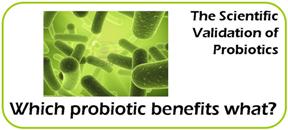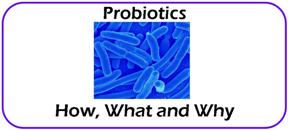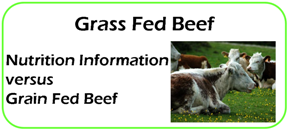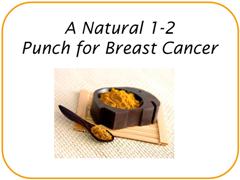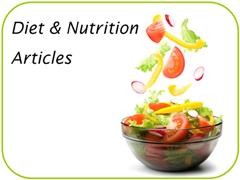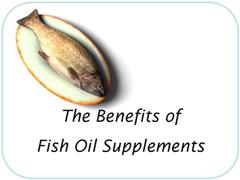|
Foods to Lower CholesterolFoods to lower cholesterol are abundant and offer one of the most effective, and inexpensive ways to improve health. A study in the American Journal of Clinical Nutrition in 2006 showed that 30% of people who were motivated to adhere to a cholesterol-lowering diet effectively reduced their LDL bad cholesterol by at least 20%. These results were similar to what those very same people experienced with statin drugs. Statins offer potential liver-damaging side-effects, but in contrast, foods to lower cholesterol offer incredible benefits to overall health. Usually, people with high cholesterol think about all the foods they shouldn't eat. Here we tell you the list of foods that you should eat! These foods will not contribute to high levels of bad LDL cholesterol or triglycerides. Even better: they will actually work to improve cholesterol levels. There is convincing evidence to support the use of foods to lower cholesterol. That 2006 study used a cholesterol-lowering diet that included dietary fiber, plant sterols, almonds, and soy protein… all items that have good scientific support. Of course, using a variety of approaches to address high cholesterol is more likely to net results than taking just one approach. So start exercising, talk to your physician about a supplement or two from how to lower cholesterol naturally, and load up on foods to lower cholesterol! Here is our complete list of cholesterol lowering foods. Vegetables High consumption of fruits and vegetables - foods that naturally contain fiber in its whole form - is associated with decreased risks of cardiovascular disease, including coronary heart disease, stroke, and peripheral vascular disorders, according to “Nutraceuticals and Atherosclerosis: Human Trials” by L Badimon, et al. In fact, in The American Journal of Cardiology, HR Ferdowsian et al, reviewed multiple experiments in which participants were fed vegan, vegetarian, or ovolactovegetarian diets. Plant-based diets consistently improve total cholesterol and LDL cholesterol levels. Fruits In addition to all the great fiber (see above), both fruits and vegetables contain flavinoids and polyphenols - a broad group of compounds that can reduce the risk for heart disease. Fatty Fish Fish oil is consistently associated with reduced risks of cardiovascular disease, and consistently lowers triglyceride levels. Fish oil also prevents arrhythmias and reduces inflammatory markers and cell adhesion molecules – important factors in heart disease.
Olive Oil Olive oil has recently received a lot of press as one of the best foods to lower cholesterol... with good cause. Components of olive oil inhibit cholesterol production, and have an antioxidant effect that specifically inhibits LDL cholesterol oxidation. Together, these features prevent atherosclerosis, according to a review on edible oils by D Bester, et al, published in Nutrition Research Reviews. Another review by L Badimon, et al in Cardiovascular Therapeutics finds that olive oil improves the major risk factors for cardiovascular disease including improved lipid profiles. Specifically, research tells us to replace saturated fat like those from meat with monounsaturated fats like olive oil, but not to replace saturated fats with carbohydrates, in order to improve all aspects of the lipid profile.
Soy Protein Soy protein, which is completely different than soybean oil (see our articles on fats), has long been considered one of the best foods to lower cholesterol. Specifically, soy protein has been shown to reduce LDL cholesterol an average of 6% when 25g is eaten per day, in a study by JI Harland et al in Atherosclerosis. Soy protein makes a good replacement for animal protein or dairy products for those trying to manage their cholesterol naturally. Nuts Nuts are my favorite foods to lower cholesterol. Listen to this: Several studies published in 1992, 1998, 2001, and 2002 showed that eating a lot of nuts correlated with a decreased risk for heart disease. Nuts have a potent combination of “good” fats (monounsaturated and polyunsaturated omega-3’s), polyphenols, fiber, antioxidants, phytosterols, and more. This chemistry is believed to lower LDL cholesterol better than what we would predict from their fat content alone, according to a 2010 review in the Journal of Clinical Lipidology. According to the studies, here’s how much you would have to eat of each type of nut to see an average 1% reduction in LDL levels:
Pick you favorite and load-up, or eat them all. See our recipe for Strawberry-Nut Frozen Treat, and tinker with it to include as many cholesterol-lowering nuts as you'd like. Garlic Garlic has long been a favorite herbal remedy for treating high cholesterol. In fact, there are many animal studies, and a few weakly designed human studies to support garlic’s cholesterol-lowering effects. However, the latest, and best designed, human trial of garlic by CD Gardner et al, in a 2007 issue of the Archives of Internal Medicine, does not support the use of raw garlic, or commercially available garlic preparations for improving lipid profiles. But, garlic may work in other ways to reduce one's risk of cardiovascular disease. Garlic is so great in so many other ways, and has no known side-effects (other than bad odor), so I still consider it a valuable natural health tool. Just don't expect to see better cholesterol results from garlic alone. Tea Green tea and black tea contain catechins and theaflavins, respectively. Recent studies suggest that those components of tea can lower LDL cholesterol. A word of caution: do not add milk or cream to your tea, as this may abolish its beneficial effects, according to a 1997 article published in the
Journal of Clinical Nutrition.
Yes, light to moderate red wine intake is associated with a decreased risk of cardiovascular disease. Preliminary studies show reduced oxidation of LDL with 14 days of consuming grape juice according to JH Stein et al, but much more research is warranted. Asparagus In January 2011, Phytotherapy Research published an article in which asparagus extracts were given to mice on a high-fat diet, with high cholesterol levels. The asparagus extracts significantly reduced weight gain, calorie intake, and LDL cholesterol. Human trials are definitely needed, but with these promising results, I was willing to add it to the list of foods to lower cholesterol. Besides, since asparagus is completely safe, I say, eat it up! ***Sept 15th, 2011 we reviewed the latest research on the effects of brazil nuts on cholesterol.*** What do you think about foods that improve cholesterol? Do you think that it adds more support to the theory that a poor cholesterol profile is a symptom of ill-health, not a distinct disease?Read more about Good Choloesterol Levels and All About Cholesterol. Read more about How to Lower Cholesterol Naturally. Visit Healthy Recipes. Return to Natural Health Food Articles from Foods to Lower Cholesterol Go to the Science of Natural Health Homepage from Foods to Lower Cholesterol |







